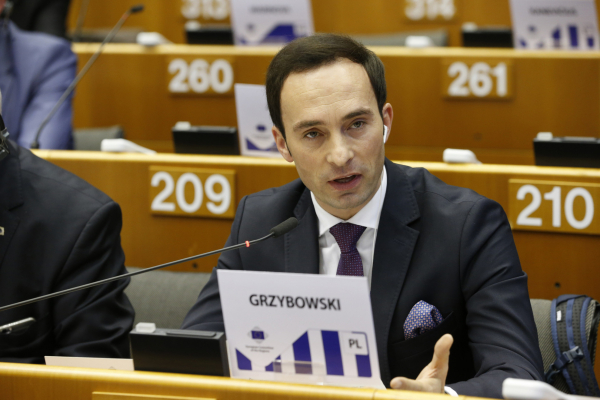Countries in Europe are actively taking part in the EU efforts to meet the challenges of the migration

At the March plenary session of the European Committee of the Regions, Paweł Grzybowski – a Member of the ECR Group and Mayor of Rypin in Poland – spoke during the debate with the European Commissioner for Migration, Dimitris Avramopoulos. In his statement, he emphasised Central and Eastern European countries' active efforts to provide humanitarian aid and to easing tensions in Eastern Europe.
Mayor Grzybowski mentioned the (in his view) harmful allegations from the European Commission that Poland and other countries in the region had shown a lack of solidarity with those countries most affected by the migration crisis.
"First, we should not equate solidarity with participation in the EU's relocation mechanism. All forms of assistance count. The Polish people, and the Polish government, believe that direct on-site aid is the most effective measure." In this context, the Mayor underlined the Polish government's support for the European Investment Bank's Economic Resilience Initiative. Poland is the largest contributor to this initiative. Paweł Grzybowski also pointed out that the "United Right" (Zjednoczona Prawica) government in Poland had quadrupled humanitarian aid contributions in comparison to the previous ruling coalition (Civic Platform and Polish People's Party).
Secondly, Mayor Grzybowski urged Commissioner Avramopoulos not to equate solidarity solely with openness to migration from the south. "Remember that the conflict in Ukraine has already claimed more than 10 000 lives. Over 1.5 million Ukrainians have been internally displaced. Since 2014, when the conflict in Ukraine broke out, Poland has taken in around 1.5 million Ukrainian citizens. Some families fled the fighting, others the economic collapse. Many of them have found work and a sense of security in Poland," he said.
The ECR Group Member concluded that countries in Central and Eastern Europe were actively helping non-EU countries. However, they are doing so in what they consider to be the most effective manner, and in line with society's expectations.

